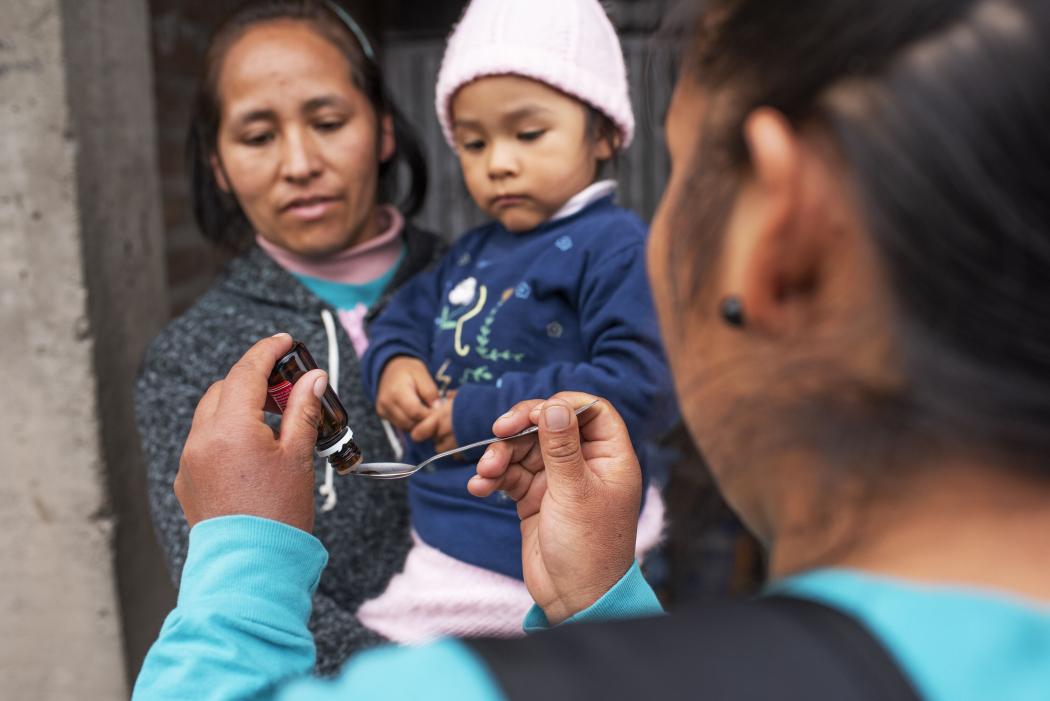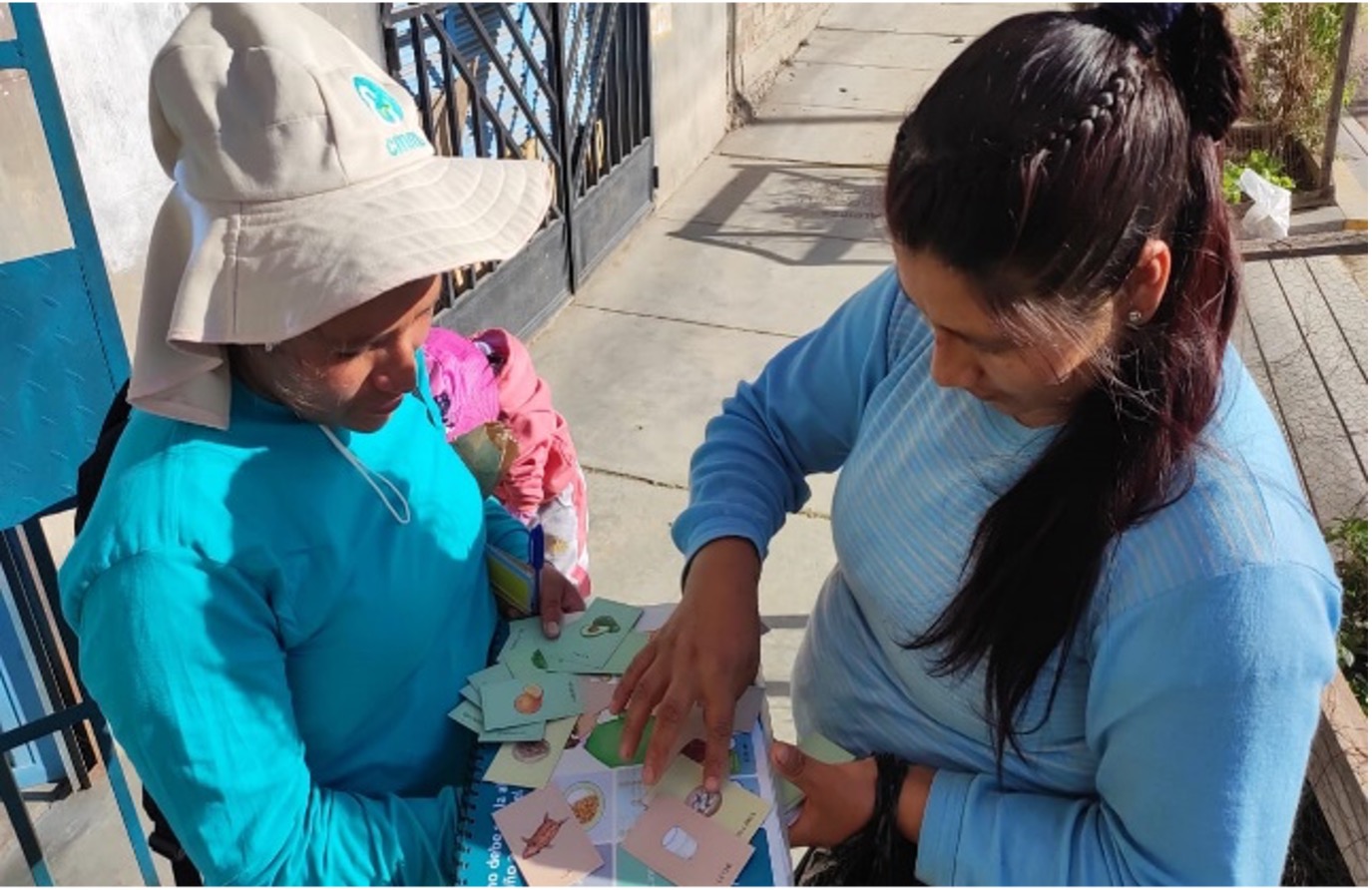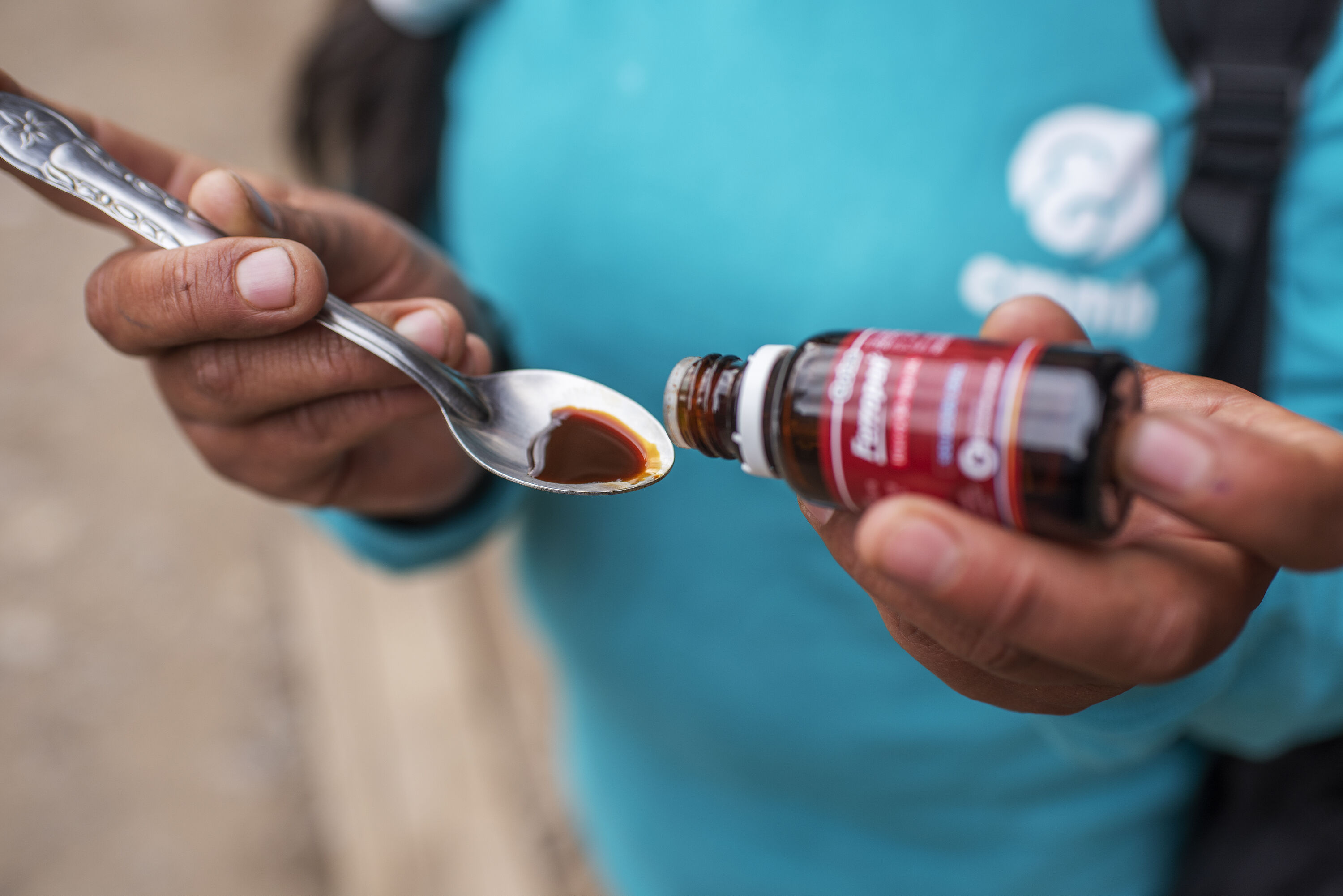World Health Worker Week: Bringing Hope to Rural Communities in Peru

Before she took on the role of a community health worker, Inés and her family were enrolled in CMMB’s Children and Mothers Partnership Program. (Photo by Omar Lucas/Getty Images for CMMB)
In remote parts of the world, community health workers play a pivotal role in strengthening health systems. Working within their communities, community health workers deliver lifesaving treatment and support to families at home. They bring care and hope to those who live far from health facilities—who would otherwise be unable to access quality care.
In Peru, CMMB helps train local women and men to perform this critical health work, such as identifying families at risk of or suffering from anemia. The condition, which causes fatigue, exhaustion, and developmental complications, is a severe public health challenge in Peru’s Huancayo and Trujillo regions, especially among children under five.
Working in their surrounding neighborhoods, community health workers identify vulnerable families and provide them with iron supplements, treating the low iron consumption that often causes anemia. They also advise mothers on healthy food preparation and nutritional habits. If a community health worker meets a family in need of additional medical assistance, they refer them to a health facility for care.
This World Health Worker Week, we show gratitude to Peru’s passionate community health workers—and to health workers worldwide who provide care to the most vulnerable. Together, let's advocate for the importance of investing in and protecting our global health workforce. We can’t afford a world without them.
Inés’s Story
When Inés first met with CMMB’s team in Huancayo, Peru, she was a young mother seeking guidance for improving her daughter’s health. With her technical nursing education, Inés was already familiar with best health practices. But as she spoke to CMMB’s team members and met other families receiving care, she realized there was much more to learn—about showing compassion, overcoming cultural barriers, and building trust.
Inés was interested in furthering her education and helping her community, so when CMMB invited her to become a community health worker, she eagerly accepted. Like most community health workers in Peru, Inés is a volunteer who receives training and incentives that cover her transportation and other costs.
At first, the work was hard. There were many children in her community suffering from anemia, and the mothers Inés met with were often distrustful, worried about betraying cultural norms or endangering their children. But Inés persisted, recruiting families into programs designed to improve childhood nutrition. Soon, she earned the trust of mothers in the community. “Now, they recommend my work and look for opportunities to be included in the project,” she said. “Several of my children have improved or no longer have anemia.”
For her family, too, CMMB’s training has delivered significant benefits. Two years ago, Inés, who is now 35, and her husband decided to have a second child. In her own parenting, she applies the practices she learned from CMMB, such as the importance of breastfeeding, preventative health, and early childhood stimulation. Her daughters, now 11 and 2, have benefited from her new knowledge.
Inés also has a better appreciation for how to care for her family’s mental health—a skill that is especially important for healthcare workers. “I feel that my communication with my daughters, my husband, my family, and the mothers in the community has greatly improved, and I feel very happy about that,” she said.
Investing in Community Health Workers
With help from tireless community health workers in Peru like Inés, CMMB has helped reduce the prevalence of anemia among children under five from 53% in 2019 to 17% in 2024—helping more children in Trujillo and Huancayo avoid the potentially devastating long-term impacts of anemia.
Thanks to CMMB’s investment in Inés’s training, she has gained critical skills as a mother, wife, and community health worker. And thanks to Inés’s investment in her community, more families have gained hope for their futures.
Trained, protected health workers mean healthier communities—especially in rural parts of the world where health facilities are scarce. But to be effective, health workers must have the training, resources, and tools to serve the people who need them the most.
During World Health Worker Week, we join the Frontline Health Workers Coalition in calling for increased investment in the global health workforce. The potential returns are compelling: investing in health workers may increase global life expectancy by up to 3.7 years and could save 60 million lives by 2030. With your support, we can train and equip more community health workers—and invest in a healthier world.


